Raúl Gimenez
Nacimiento : 1950-09-14, Santa Fe, Argentina
Muerte : 1994-02-25
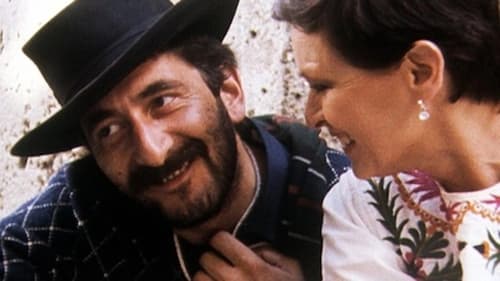
Self (archive footage)
When director Daniel Schmid grew up, his parents ran a hotel in the Alps, and this singular setting was to influence his film. Rather by coincidence he came to Berlin in the early 1960s and became part of the new German wave. Schmid worked with, among others, Wenders and Fassbinder, for example as an actor in Wender’s The American Friend. He met Ingrid Caven, who was to play a diva in several of his films. This is a documentation of a part of modern European film history and a good analysis of artistry and how it corresponds to the individual behind the camera. A wealth of archival footage brings us close to many directors and actors in Schmid’s circle. If you’ve never seen a Daniel Schmid film, you are sure to want to after watching this portrait of his life.

Production Design
The formerly great Swiss hotel which Valentin's family owned when he was a boy has been emptied and is about to be torn down. He revisits the magical site's empty halls and ballrooms.

Costume Design
Frustrated with her life, a Parisian tells her philandering husband about her lover.

Production Design
Frustrated with her life, a Parisian tells her philandering husband about her lover.

Production Design
Suzy, a beautiful woman, is coming back to Paris to attend the funeral of her lover, a married man. Cecile, his wife, is holding Suzy responsible for his suicide. By finding Suzy in Paris, Cecile is trying to seek the truth by playing a psychological game on her.
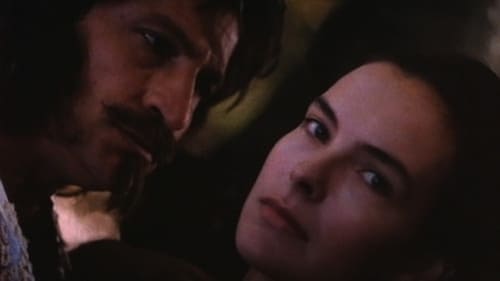
Production Design
A journalist is assigned to interview an eccentric anthropologist who has exhumed the skeleton of Jörg Jenatsch, a revered freedom fighter who was mysteriously murdered in 1639. Initially disinterested, the journalist begins to uncover unflattering truths about the national hero and experiences visions in which he seems to be witnessing events that transpired over 300 years ago. As he obsessively pursues the investigation, his personal life and his grip on reality disintegrate, drawing him relentlessly toward the fatal carnival at which Jenatsch was killed.

Le chauffeur de taxi
A journalist is assigned to interview an eccentric anthropologist who has exhumed the skeleton of Jörg Jenatsch, a revered freedom fighter who was mysteriously murdered in 1639. Initially disinterested, the journalist begins to uncover unflattering truths about the national hero and experiences visions in which he seems to be witnessing events that transpired over 300 years ago. As he obsessively pursues the investigation, his personal life and his grip on reality disintegrate, drawing him relentlessly toward the fatal carnival at which Jenatsch was killed.

Emilio
A diverse group of guests gather in a small hotel in Paris to contemplate the state of their lives in this pretentious drama. Joseph Goldman (Fernando Rey) is a washed-up Hollywood actor making a living in the dinner-theater circuit. Accompanied by his wife Sarah (Carole Regnier), Goldman meets Frederique (Berangere Bonvoisin), who is hiding from her former lover. French financier Arthur (Fabrice Luchini) hopes to get into the film industry and bends the ear of a British director (Michael Medwin). The talkative film has little action, and none of the characters evoke much interest or resolve their dilemma.

Mindou

Ernest la gâchette
Directors Jean-Henri Roger and Juliet Berto begin this thriller with sequences on the contemporary politics of southern France and the infiltration of organised crime into real estate development there: crime bosses were torching forest tracts to make way for their development schemes in the early 1980s. In the fictionalised story, Paula Barretto is caught in this underworld because her father was involved in the drug business, her brother is in the real estate scam, and her lover is an armed thief. Although she tries to get out of her corrupt and dangerous environment, it is not an easy task when even the police officers cannot be trusted, and the underworld has informants everywhere.

Production Design
A woman goes to Cannes and, lost in its chaos and unable to obtain tickets, ends up watching it on television from her hotel room.

Production Design
Portrait of filmmaker Douglas Sirk.
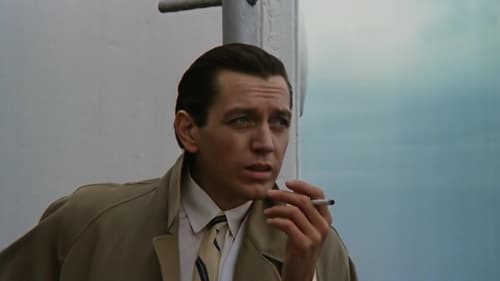
Thanks
Set amid the European community in an unspecified North African country, a colony on the verge of nationalism just before the war. And colonized is what happens to a French diplomat, Julien Rochelle, when he meets the mysterious beauty Clothilde de Watteville. Schmid 's favorite axiom, that love is projection, never had such a thorough airing. Is Clothilde really the wife of a French official now holed up in Siberia? Or is she Hecate, goddess of black magic and devourer of the Arab boys she meets far from the European quarter? Only our projections know for sure; for the rest, she is a "woman looking out into the night." Drawn from a novel by Paul Morand, who based the main character on his wife Helene, Schmid's film achieves an atmosphere of magic in which psychological credibility is not so much absent as irrelevant-a film that distances itself from the drama it invokes, perhaps as the elusive Clothilde turns her back on the madness she provokes.

Production Design
Set amid the European community in an unspecified North African country, a colony on the verge of nationalism just before the war. And colonized is what happens to a French diplomat, Julien Rochelle, when he meets the mysterious beauty Clothilde de Watteville. Schmid 's favorite axiom, that love is projection, never had such a thorough airing. Is Clothilde really the wife of a French official now holed up in Siberia? Or is she Hecate, goddess of black magic and devourer of the Arab boys she meets far from the European quarter? Only our projections know for sure; for the rest, she is a "woman looking out into the night." Drawn from a novel by Paul Morand, who based the main character on his wife Helene, Schmid's film achieves an atmosphere of magic in which psychological credibility is not so much absent as irrelevant-a film that distances itself from the drama it invokes, perhaps as the elusive Clothilde turns her back on the madness she provokes.
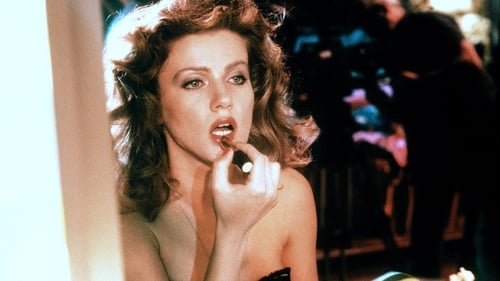
1st Waiter (uncredited)
Lola, una cantante de cabaret, seduce al señor von Bohm, un delegado de urbanismo. Al honrado funcionario se le plantea un grave conflicto moral cuando descubre que el cabaret es la tapadera de un burdel y las cantantes, prostitutas. Se inspira en 'El ángel azul' de Josef von Sternberg y forma parte de la trilogía de Fassbinder sobre la Alemania de la posguerra junto con 'El matrimonio de Maria Braun' y 'La ansiedad de Veronika Voss'.

Production Design
Lola, una cantante de cabaret, seduce al señor von Bohm, un delegado de urbanismo. Al honrado funcionario se le plantea un grave conflicto moral cuando descubre que el cabaret es la tapadera de un burdel y las cantantes, prostitutas. Se inspira en 'El ángel azul' de Josef von Sternberg y forma parte de la trilogía de Fassbinder sobre la Alemania de la posguerra junto con 'El matrimonio de Maria Braun' y 'La ansiedad de Veronika Voss'.
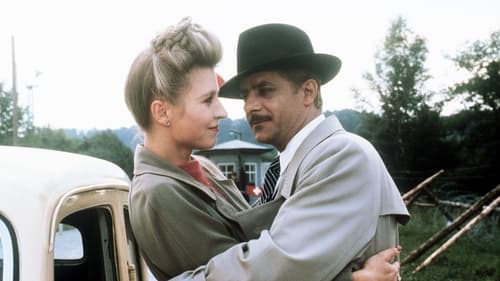
Blonsky
Lili Marleen es la historia de una canción que, durante la Segunda Guerra Mundial, llegó a convertirse en un himno, primero del nazismo y después del bando aliado. En 1936, Norbert Schultze, un pianista de cabaret, le puso música a la letra que había escrito años atrás un soldado alemán. Tres años más tarde la grabó en disco una bella pero mediocre cantante, Lale Andersen, que consiguió un éxito y una popularidad tales que los servicios de propaganda del Tercer Reich decidieron hacer suya la canción.
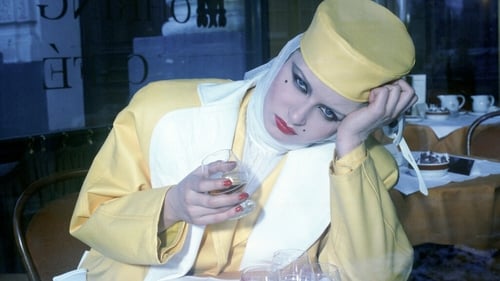
A sartorially resplendent woman of few words arrives in Berlin with plans to live out the rest of her days as a drunkard.

Paul
Comedia de humor negro que satiriza las peripecias de una banda de terroristas de Berlín, cuyos miembros pertenecen a las clases altas. Un nuevo análisis de la sociedad alemana, común denominador de la mayoría de las obras del director.

Production Design
Comedia de humor negro que satiriza las peripecias de una banda de terroristas de Berlín, cuyos miembros pertenecen a las clases altas. Un nuevo análisis de la sociedad alemana, común denominador de la mayoría de las obras del director.

Simonetti
Cahiers du cinéma critic Serge Daney asks whether The Kingdom of Naples is "leftist fiction, kitschy melodrama, photo-roman, a decadent chronicle of a city, opera in a minor key, or simply the first realistic narrative film by Schroeter?" It is all of these and more: an epic chronicle of proletarian family life in Naples from 1943 to 1972 that brilliantly captures the wretched poverty, overwrought passions, and political, religious and economic upheavals of Sicily across two generations. Schroeter assimilates neorealist aesthetics and class sympathies with the tempestuous excesses of popular melodrama, borrowing freely from Rossellini, Pasolini, Visconti, Brecht, and Rossini. (Facets)

Adrian
Voted for in the 2012 Sight & Sound poll

Production Design
Voted for in the 2012 Sight & Sound poll

Antonio
A thriller in which the characters are Latin-American exiles living in Paris. It is also a comedy about artists who play at revolution rather than actually participate in one
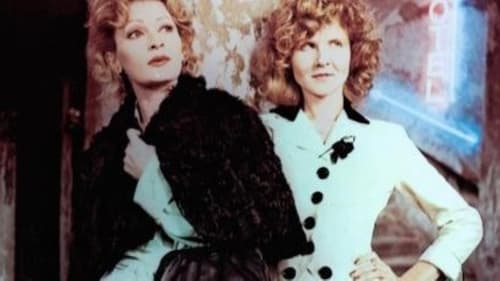
Set Designer
Beautiful, detached, laconic, consumptive Lily Brest is a streetwalker with few clients. She loves her idle boyfriend Raoul who gambles away what little she earns. The town's power broker, called the rich Jew, discovers she is a good listener, so she's soon busy. Raoul imagines grotesque sex scenes between Lily and the Jew; he leaves her for a man. Her parents, a bitter Fascist who is a cabaret singer in drag and her wheelchair-bound mother, offer no refuge. Even though all have a philosophical bent, the other whores reject Lily because she tolerates everyone, including men. She tires of her lonely life and looks for a way out. Even that act serves the local corrupt powers.

Jim
Beautiful, detached, laconic, consumptive Lily Brest is a streetwalker with few clients. She loves her idle boyfriend Raoul who gambles away what little she earns. The town's power broker, called the rich Jew, discovers she is a good listener, so she's soon busy. Raoul imagines grotesque sex scenes between Lily and the Jew; he leaves her for a man. Her parents, a bitter Fascist who is a cabaret singer in drag and her wheelchair-bound mother, offer no refuge. Even though all have a philosophical bent, the other whores reject Lily because she tolerates everyone, including men. She tires of her lonely life and looks for a way out. Even that act serves the local corrupt powers.

Production Design
Nightclub singer La Paloma succumbs to the persistent courting of a chubby rich admirer and marries him. Before the marriage, she was thought to be dying, but soon she is well. She believes her husband's love has cured her, but her efforts to love him begin to fade as she discovers true love with her husband's old school friend.





















